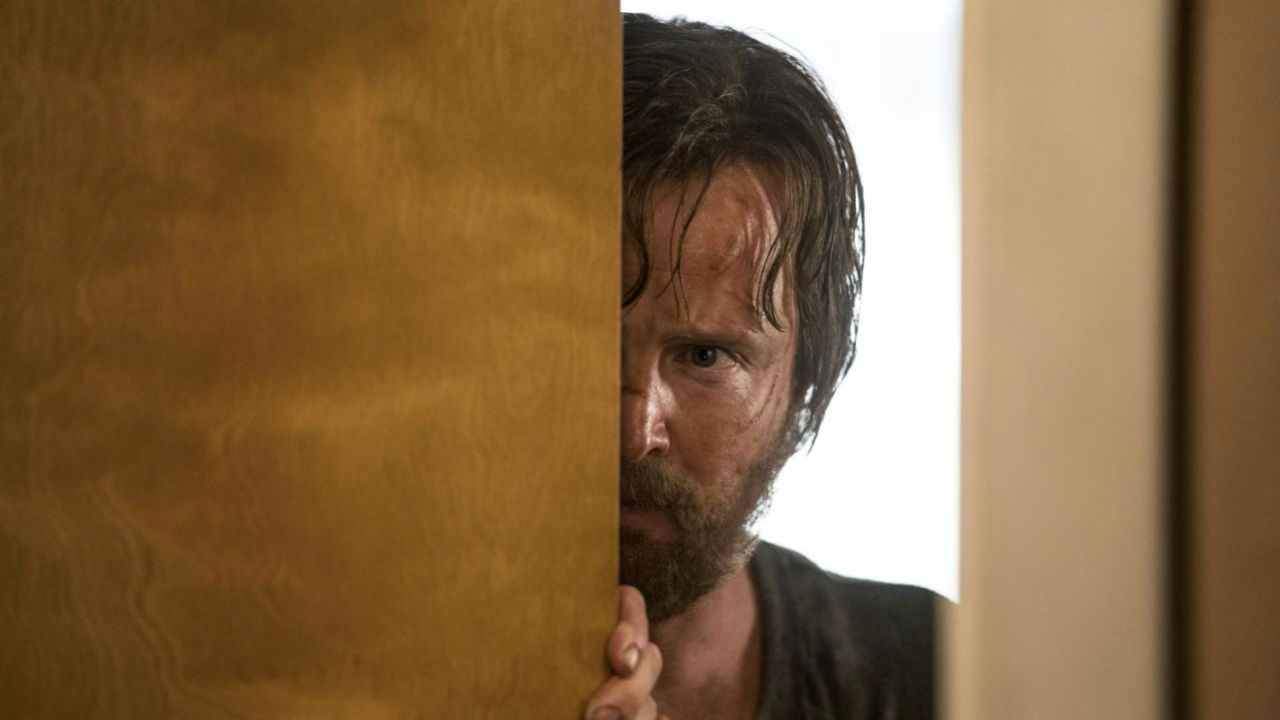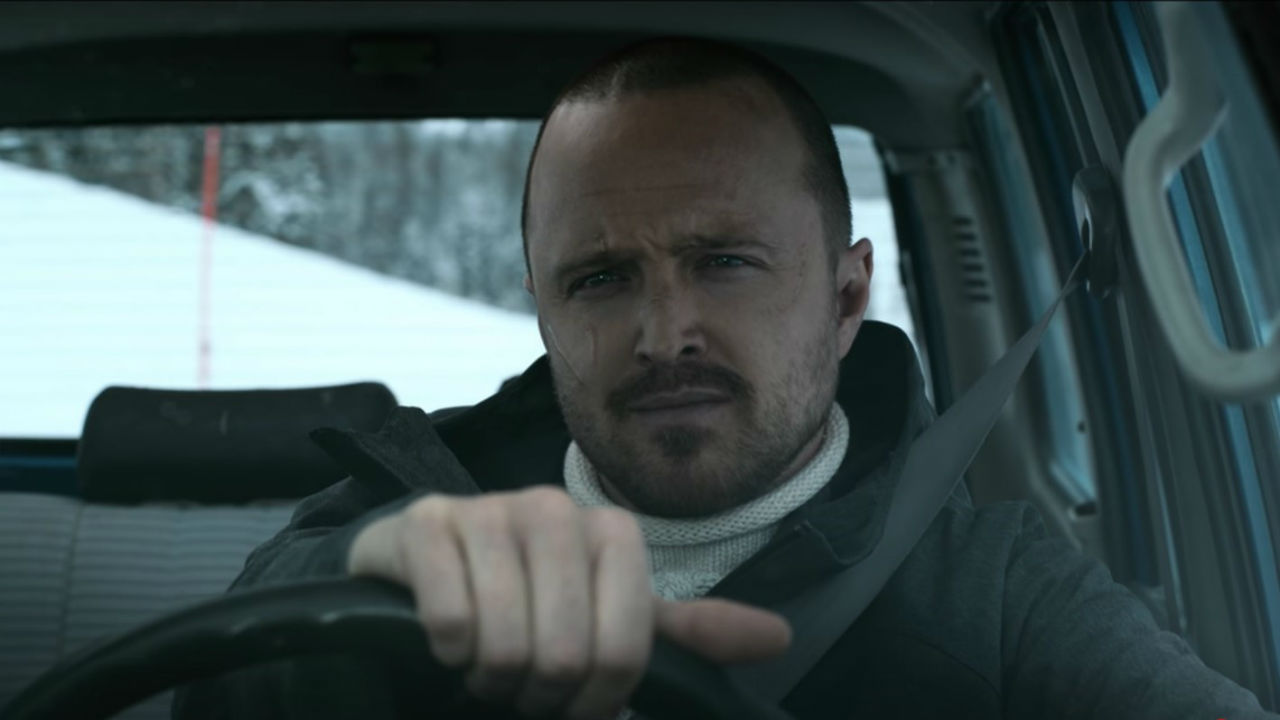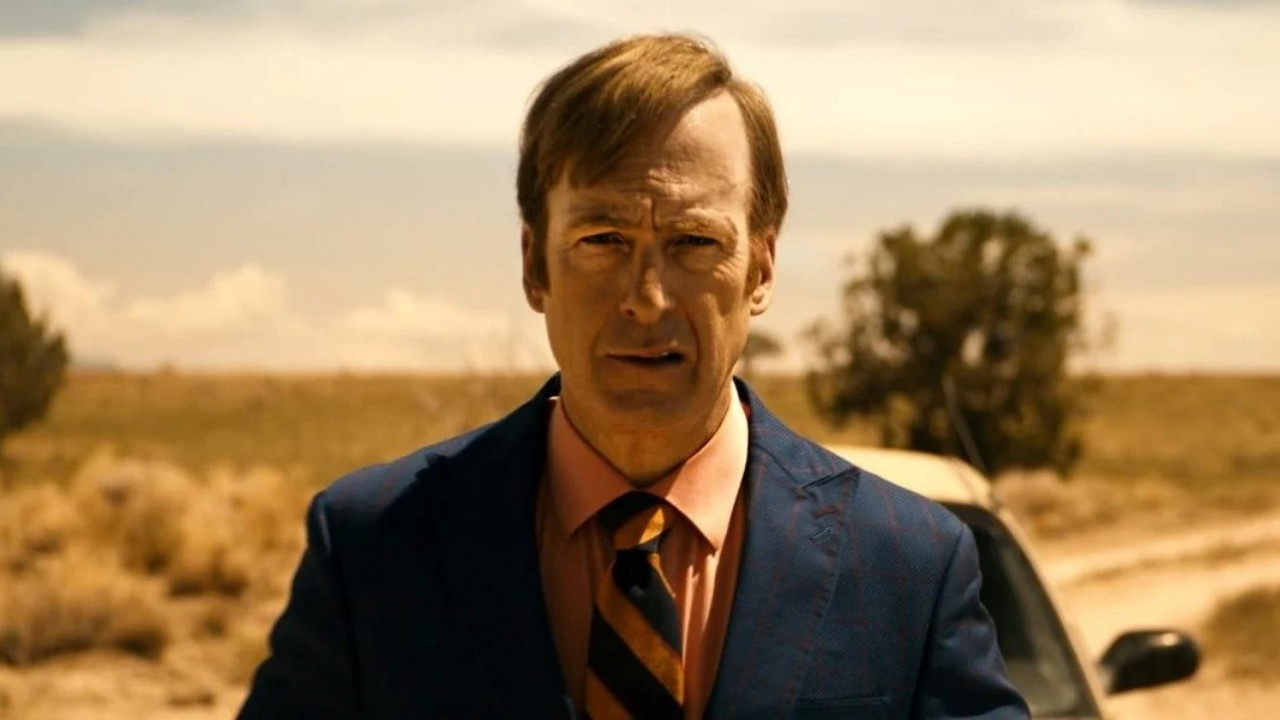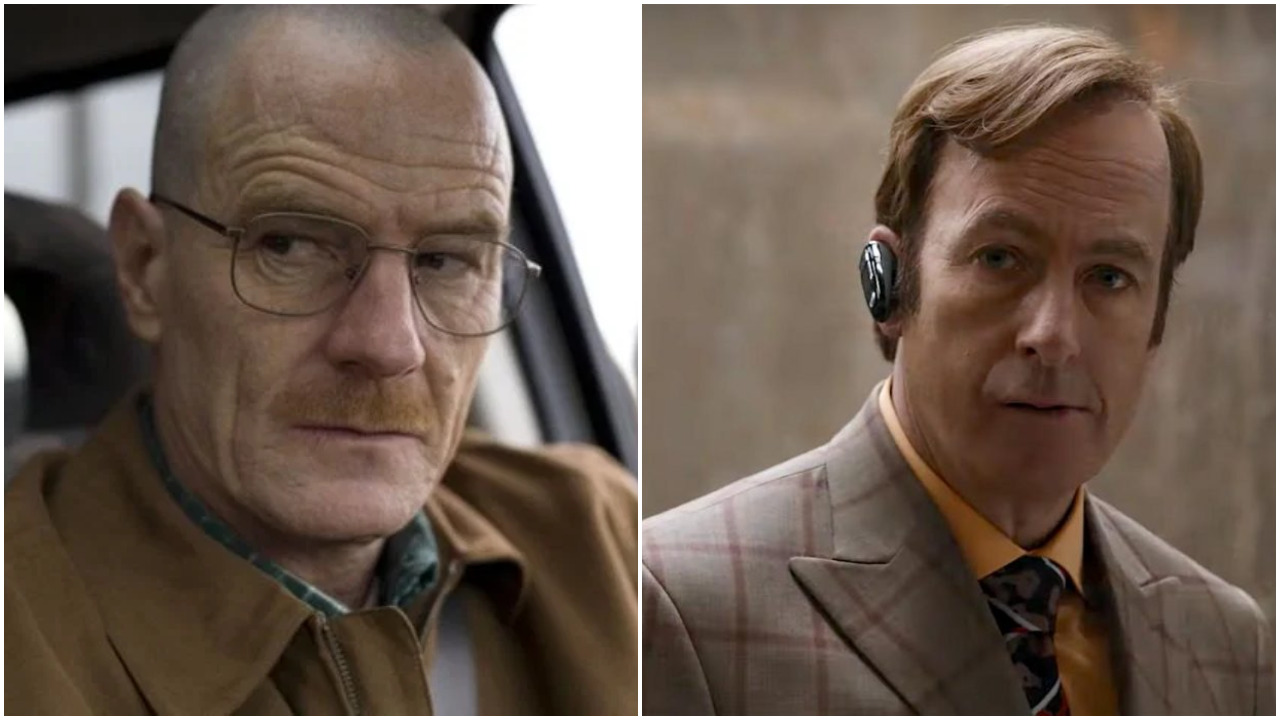I am the one who rocks: El Camino’s composer on bringing the Breaking Bad saga to a fitting end
El Camino composer Dave Porter talks to GamesRadar+ about "trying everything" for the Breaking Bad movie’s ending

Over the last 12 years, the world of Breaking Bad has captivated us like no other. You can point to various factors for that success – the knife-edge plot, the actors who have cemented Albuquerque’s major players in pop culture folklore, the driving force that is show creator Vince Gilligan – but it’s undoubtedly the soundtrack that has elevated the show’s tensest scenes to almost unbearably thrilling heights.
But there had to be a release. And so came El Camino: A Breaking Bad Movie, a chance to say a sincere, yet sombre goodbye to Jesse Pinkman. Back along for the ride was Dave Porter, who has scored every episode of Breaking Bad and Better Call Saul. Recently, I had the chance to talk to Porter about the challenges of closing Jesse’s final journey. He also broke down one of the most tense scenes in the Breaking Bad-verse and waded into the great Breaking Bad vs. Better Call Saul debate.
El Camino: A score to settle

El Camino – released on Netflix last year – is a natural evolution for Breaking Bad; a postscript feature-length episode that, while writ a little larger, feels deeply ingrained in what made the show so successful. Despite being tied to what came before, for Porter, working on El Camino was a surprisingly freeing experience.
“The movie is much more flexible,” Porter says over the phone. “We had a lot more freedom. The part that changed that most for me was my writing experience and also my interaction with Vince [who directed]. We had so much more time to bounce ideas back and forth; for me to experiment with things I never even bothered to show him because I knew they weren’t going to work. Once we were really in tune with what we really wanted to do, we had the luxury of being able to fine-tune things until they were exactly how we wanted them.”
That space to experiment was present throughout for Porter, even with the dreaded s-word: spoilers. El Camino itself was shrouded in secrecy. As Jesse Pinkman actor Aaron Paul revealed during a roundtable at which GamesRadar+ was present, Bryan Cranston was essentially smuggled into the show and his Broadway show shut down for a day so he could film his cameo. That level of security wasn’t the case for Porter.
Porter, who has also worked on Preacher and The Disaster Artist, arrived “late in the process” though admits he “did have to read the script in a locked room and had to give the script back halfway through so I could use the restroom.”
“Of course, I had to swear myself to secrecy for quite some time,” he continues. “But, thankfully, I didn’t actually know all that much about it, partially by design because I figured the less I know, the less I’m in danger of spilling.”
Bringing all the latest movie news, features, and reviews to your inbox
That loose playfulness extends to Porter’s work on the final scene, one which sees Jesse – having finally unburdened himself from his previous life – escaping north to Alaska.
Watching the scene back, I was struck by just how true to the core tenets of the show, especially its final season, the moment was. There is anger. The echoes of Breaking Bad’s famous main theme creep in. There is contemplation – steady periods of silence – and there is sadness, characterised by melancholy-filled guitar twangs. It’s a perfect end to Jesse’s gut punch of a story. And it almost didn’t turn out that way.
“That was certainly one of the tougher pieces in the film and one of the ones we spent the most time on. We tried everything, believe me,” Porter says.
“There were versions that were enormous, sweeping, Hollywood ending kind of versions. There were versions that were darker. But in the end, and this is not uncommon for us, the right answer was the sparest answer, the one that left things mostly ambiguous. Or, at least open for everyone’s interpretation to apply to that ending so we’re not dictating to our audience how they feel the story ends but everyone can add their own ending. Of course, that leads to lots of discussion too about what happens at the end and we view that as a good thing.”
For Porter and the team, El Camino was never going to be a case of grandstanding or a victory lap for Jesse; this was business as usual, a subtle goodbye that is meant to openvended. The creative process may have changed slightly, yet it’s clear that there’s an unwavering throughline from the first episode to these final moments. El Camino is Breaking Bad. Breaking Bad is El Camino.
Saul still calls

Of course, there’s still another story to finish. Porter remains in the dark – as with all of us – about Better Call Saul’s final season. And, thanks to the high watermark set these past few seasons, there’s a frenzied anticipation for what’s to come.
A watershed moment arrived in one of the fifth season’s recent episodes. During episode nine, “Bad Choice Road”, the slimy Lalo Salamanca confronts Jimmy and Kim at the lawyer’s apartment, all while fixer Mike trains his sniper sights on the trio from a rooftop across the street. What follows is nine-and-a-half-minutes of nerve-shredding tension, backed, as ever, by Porter’s score.
So, how do you compose something that is designed to enrapture an audience for so long? The challenges are manifold: notice the music and it becomes distracting, ease up too much and you risk losing the audience. It’s a fine line to tread and Porter’s breakdown of the moment feels like he’s letting us in on a secret code to an uncrackable enigma.
“There is so much there already, and so much tension in that scene, that the job for me is just to try and sweeten it a little,” Porter begins. “Just to bring out as much as I can, to my mind, without being noticed. Because if the viewer was really tuned to what the music is doing, it would be a distraction from the already-complicated machinations of what’s going on there and all the characters, Mike out the window with the rifle and all the manoeuvres that are going on mentally.
“So how do I, in a very simple and powerful way, add and enhance that sense of tension and dread and slowly but surely have it build? It’s not a short scene. The music in it lasts at least five minutes, I think. It’s a trick to slowly build it over the course of all that time.”
The solution? “I think about it as a lot of tension, followed by release, followed by a little bit of greater tension, followed by more release,” he says. “I do that through the sounds that I use, which inherently have that sense of unease in them and then I’m playing in ways that are creating little feelings of dissonance and discomfort. Then the next round is a little more uncomfortable… until the very end of the scene where it’s the biggest amount of tension and then, suddenly, completely releases once Lalo has left the room.”
Better Call Saul vs. Breaking Bad

Scenes such as Lalo’s breathless confrontation have made everyone sit up and take notice. So much so that Breaking Bad’s place upon the pantheon of Prestige TV greats has been put into question by the prequel series. For Porter, arguing over whether Breaking Bad or Better Call Saul is the better show is a debate he does not want to be drawn into – at first.
“For me they are apples and oranges,” Porter says. “It is sort of like comparing Michael Jordan and LeBron James. It’s two fantastic TV shows – which I’ve been very blessed to be a small part of – but they are very much in tune and very much inseparable from the time in which they are in. I think there is a chord that Breaking Bad struck, very much because of the time it was out. It was the right show at the right moment. I think that Better Call Saul is that as well, though it may take even longer to be recognised.”
However, while that may be the case, there is an argument to be made that Better Call Saul is the better show, due mainly to the writers and executive producers having continuously improved over the years. “We push each other creatively to do better all the time and we’re much better at our crafts now at the end of this 10, 12 year run than we were five years ago,” Porter says. “In that context, that’s an argument for saying there’s some aspects of [Better Call Saul] that may be even greater than Breaking Bad.”
As Better Call Saul draws to a close, the team can take heart in knowing that they already struck all the right chords with El Camino and Breaking Bad. Vince Gilligan, Dave Porter, and everyone involved will just need to play a similar tune one more time when Saul returns for its sixth and final season.
- El Camino Easter eggs: every reference and cameo in the Breaking Bad movie
- El Camino ending explained: your biggest questions answered
I'm the Senior Entertainment Writer here at GamesRadar+, focusing on news, features, and interviews with some of the biggest names in film and TV. On-site, you'll find me marveling at Marvel and providing analysis and room temperature takes on the newest films, Star Wars and, of course, anime. Outside of GR, I love getting lost in a good 100-hour JRPG, Warzone, and kicking back on the (virtual) field with Football Manager. My work has also been featured in OPM, FourFourTwo, and Game Revolution.




